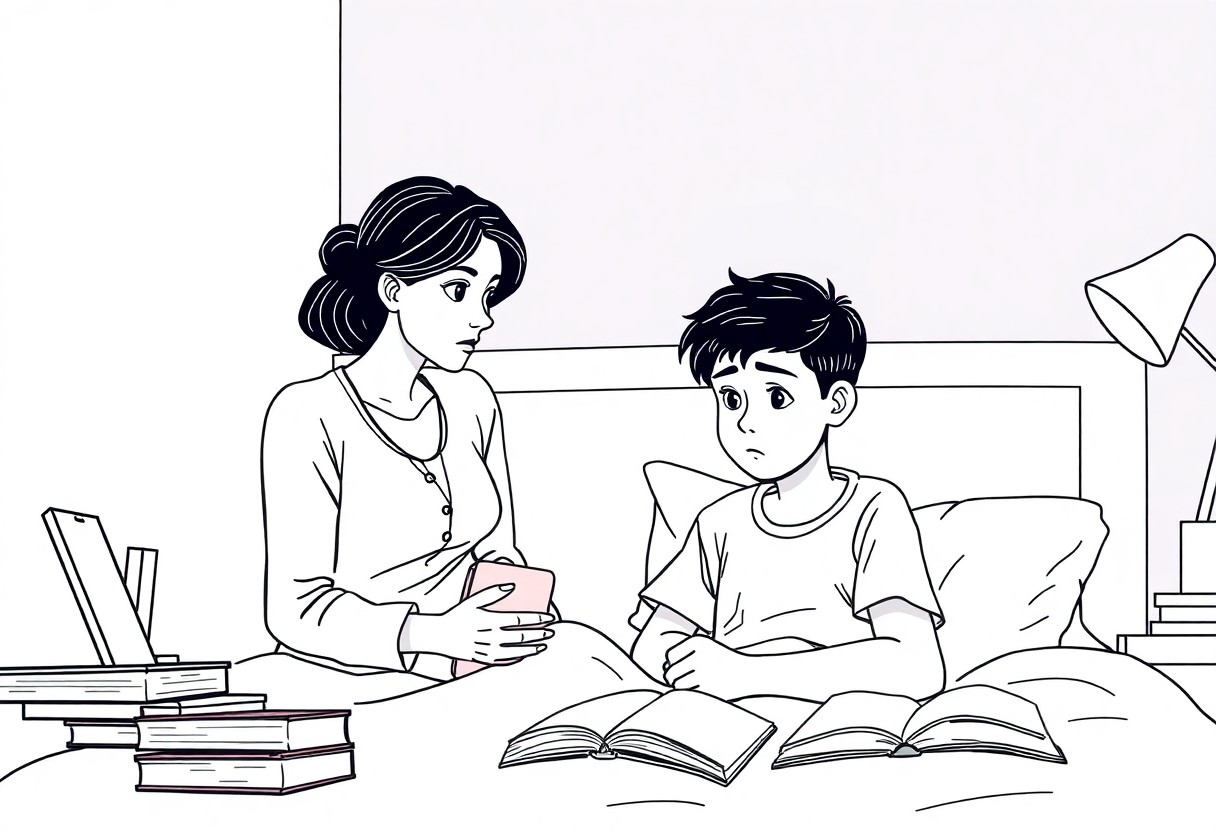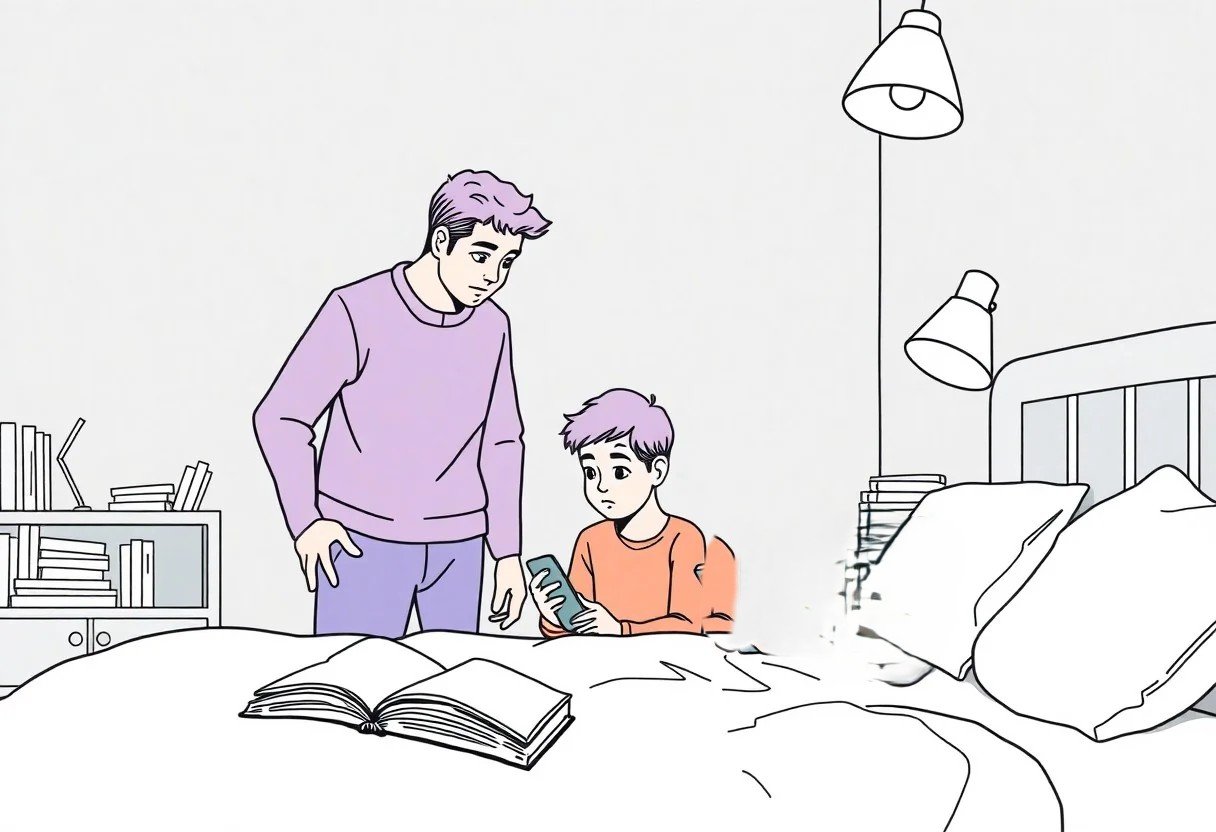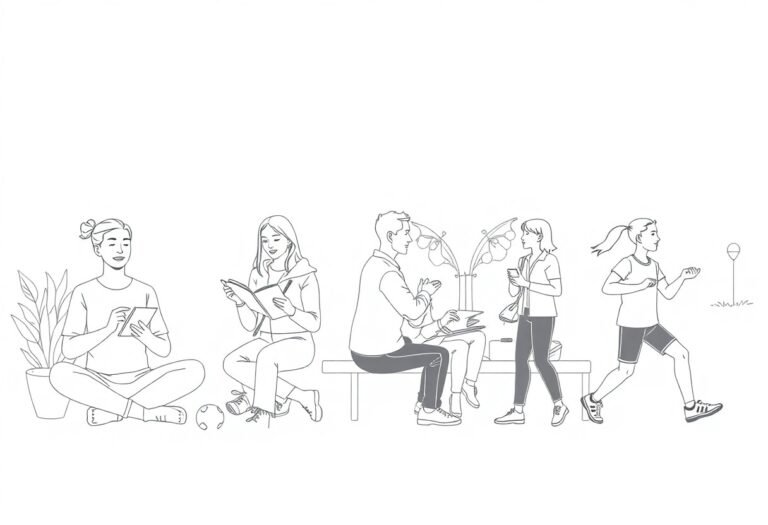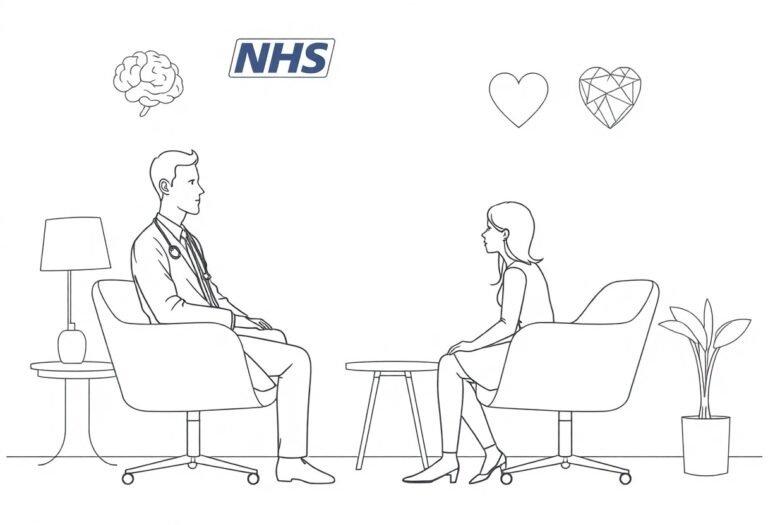How Can Parents Identify Signs Of Struggling Teen Mental Health?
Many parents may not realise the subtle signs that indicate their teen is facing mental health struggles, including the Signs Of Struggling Teen Mental Health. As you navigate the challenges of parenthood, being attuned to your teen’s behaviour, mood changes, and social interactions is crucial. Watch for increased withdrawal, changes in academic performance, or shifts in friendships, as these can signal underlying issues. Open communication and supportive environments play a vital role in helping your teen feel safe to express their feelings. Learning to identify these signs early can make a significant difference in your teen’s emotional well-being.
Key Takeaways:
Recognising the Signs of Struggling Teen Mental Health can empower parents to seek help and support for their children.
- Behaviour changes: Look for mood shifts, increased irritability, or withdrawal from social activities.
- Academic performance: Declining grades or a lack of interest in school can signal underlying mental health issues.
- Physical signs: Changes in sleep patterns, appetite, or unexplained physical complaints may indicate stress or anxiety.
- Substance use: Increased use of alcohol, drugs, or other risky behaviours can be warning signs of mental health struggles.
- Communication patterns: Frequent expressions of hopelessness, excessive worry, or negative self-talk should be addressed promptly.
Understanding Teen Mental Health
To navigate the complex world of teen mental health, it’s important to acknowledge that this phase often brings various challenges. During adolescence, your child undergoes significant physical, emotional, and social changes, which can lead to stress and emotional struggles. As a parent, fostering open communication and being aware of these shifts can help maintain your teen’s mental well-being.
Common Mental Health Issues
Mental health issues among teens can manifest in various forms, including depression, anxiety, and behavioural disorders. These conditions often go unnoticed and can significantly impact your teen’s daily life, academics, and relationships. Being vigilant about any changes in your teen’s behaviour or mood is vital for early intervention.
Importance of Early Identification
Mental health issues, when identified early, significantly improve your teen’s chances for effective treatment and recovery. The earlier you detect signs of distress, the easier it is to provide support and seek professional help. Early identification can also bridge the gap between problems and solutions, helping your teen develop coping strategies before issues escalate.
Teen mental health is a critical aspect of their overall development. By catching signs of struggle early, you create an environment where your child feels supported and understood. Addressing mental health issues promptly can lead to positive outcomes, enhancing their resilience and ability to manage challenges in the long run. Ultimately, your proactive engagement can foster a foundation of trust, allowing your teen to seek help when needed.
Recognising Warning Signs
If you want to support your teen effectively, it’s vital to recognise the warning signs of potential mental health struggles. Keep an eye on changes in their behavior, emotional responses, and overall demeanor, as these can serve as red flags. Being proactive in understanding these signs can make a significant difference in their well-being.
Behavioral Changes
At times, your teen may exhibit noticeable shifts in their behavior, such as withdrawing from social activities, changes in sleeping or eating patterns, or a sudden decline in academic performance. These alterations could signal that they are struggling and may need your attention and support.
Emotional Indicators
For your teen, emotional indicators can manifest in various ways, such as irritability, persistent sadness, or overwhelming anxiety. These feelings often indicate a deeper struggle and should be taken seriously.
Understanding emotional indicators is vital for recognising when your teen might be in distress. Keep an eye out for increased mood swings or expressions of hopelessness, as these could signal more serious issues. Additionally, if your teen experiences a significant drop in self-esteem or exhibits persistent feelings of worthlessness, it is vital to seek help. Acknowledging these emotions can be the first step in bridging the gap to getting them the support they need.
The Role of Communication
Once again, effective communication serves as the foundation for fostering a positive relationship between you and your teen. Open lines of communication can help you identify potential mental health struggles early on. Regularly checking in and creating a safe space for your teen to express their thoughts can lead to better understanding and support for their emotional needs. By demonstrating your willingness to listen, you empower your teen to share their feelings, ensuring they feel valued and heard.

Encouraging Open Dialogue
Role modelling open dialogue is necessary for your teen’s emotional well-being. Establishing routine conversations about thoughts, experiences, and feelings creates a safe atmosphere where your teen can express themselves without fear of judgment. You can encourage them by sharing your own experiences and asking open-ended questions. This not only strengthens your connection but also shows your teen that it’s normal and acceptable to discuss their feelings.
Active Listening Techniques
Along with encouraging open dialogue, practising active listening techniques will greatly enhance your communication with your teen. These techniques involve giving your full attention, making eye contact, and responding thoughtfully to their concerns. This not only validates their feelings but also helps you better understand their struggles and perspectives. By actively engaging in the conversation, you show that their experiences matter, which is vital for building trust.
Open dialogue is incomplete without active listening techniques. By practising these techniques, you can enhance your interaction quality with your teen. Simple actions such as maintaining eye contact, nodding, and repeating back what they say can help them feel truly heard. Avoid interrupting or jumping to conclusions; instead, ask clarifying questions to demonstrate your interest. These methods foster a positive environment where your teen can feel comfortable sharing their struggles, ultimately enabling you to provide the support they need during challenging times.
Environmental Factors
Not all teenagers experience the same challenges, but various environmental factors can significantly influence their mental health. It’s important to consider:
- Home environment and stability
- Peer relationships
- School atmosphere
- Exposure to violence or trauma
Any changes or stress in these areas can potentially lead to signs of mental health struggles in your teen.
Impact of School and Social Life
Above all, the pressures of school and social life can greatly impact your teenager’s mental well-being. Academic demands, bullying, and peer pressure may cause anxiety and feelings of isolation. Pay attention to your child’s mood and behaviour changes as they navigate their educational and social environments.
Family Dynamics
By being aware of your family dynamics, you can better understand how your family relationships affect your teen. A supportive environment fosters resilience, while conflict or poor communication can exacerbate feelings of anxiety or depression.
Social interactions within the family shape your teen’s emotional framework. Positive family engagement promotes emotional stability, while high levels of conflict or lack of support can lead to feelings of isolation. Ensure that family members communicate openly and establish a nurturing environment where your teen feels heard and valued. Addressing any familial issues head-on is vital to preventing further mental health challenges.
Seeking Professional Help
For many parents, recognising when to seek help for their struggling teen can be challenging. It’s necessary to act promptly if you notice significant changes in their mood, behaviour, or academic performance. A mental health professional can provide guidance and support tailored to your child’s specific needs.
When to Consult a Professional
Among the signs that indicate the necessity of consulting a mental health professional are persistent feelings of sadness, withdrawal from social activities, or drastic changes in sleeping and eating habits. If your teen expresses feelings of hopelessness or discusses self-harm, you should reach out for help immediately.
Types of Mental Health Resources
When exploring mental health resources for your teen, consider various options available in your community and online. These can include:
- Therapists or counsellors: Professionals who provide one-on-one support.
- Support Groups: Groups where teens can connect with peers facing similar challenges.
- Hotlines: Immediate support from trained counsellors for urgent situations.
- School Counsellors: Resources are already available on campus.
- Online Platforms: Virtual therapy sessions or mental health resources.
Any choice you make should be based on your teen’s specific needs and preferences.
| Resource Type | Description |
|---|---|
| Therapists | Professionals offering tailored interventions. |
| Support Groups | Peer-led initiatives for shared experiences. |
| Hotlines | Immediate access to crisis intervention. |
| School Counselors | Immediate support within the educational environment. |
| Online Platforms | Convenient virtual consultations and resources. |
Health and wellness are important for your teen’s overall development. Finding the right resources can significantly enhance their coping strategies and resilience. Your involvement is key—monitoring their progress and encouraging them to engage with support systems can lead to sustained improvements in their mental health. The wider community can also play a role through:
- Community Centres: Local organisations offering workshops and support.
- Educational Programs: Programs focused on mental health awareness.
- Family Support Resources: Services aimed at helping families navigate mental health issues collectively.
- Therapeutic Activities: Engaging in art, music, or physical activities.
- Mindfulness Programs: Classes teaching techniques to manage stress.
Any resource that connects your teen to mental health education can empower them to tackle challenges effectively.
| Resource Type | Benefits |
|---|---|
| Community Centers | Accessible mental health support. |
| Educational Programs | Prevention and awareness initiatives. |
| Family Support Resources | Improved family dynamics. |
| Therapeutic Activities | Creative outlets for expression. |
| Mindfulness Programs | Tools for stress reduction and well-being. |
Supporting Your Teen
All teenagers experience challenges, but as a parent, it is important to recognise when your teen is struggling with their mental health. By fostering open communication and providing support, you can create an environment where your teen feels comfortable expressing their emotions and seeking help. This collaborative approach not only strengthens your relationship but also empowers your teen to navigate their mental health journey more effectively.
Effective Coping Strategies
For helping your teen manage stress and emotional turmoil, encouraging effective coping strategies can make a significant difference. These may include activities like journaling, mindfulness practices, or engaging in physical exercise. By introducing these techniques, you enable your teen to develop resilience and a sense of control over their mental well-being.
Building a Supportive Home Environment
Above all, creating a supportive home environment is key to your teen’s mental health. You want to cultivate a space where they feel safe, loved, and accepted without judgment. Be approachable and actively listen to their struggles, as this openness fosters trust and encourages honest conversations about feelings and challenges.
Understanding that a supportive home environment promotes positive mental health for your teen is important. Encouraging open dialogue about their emotions and experiences helps them feel secure and valued. Additionally, setting consistent routines and being involved in their activities can strengthen your bond. Make time for fun family moments and establish a judgment-free zone where they can express their feelings. Implementing these practices can lead to a happier, healthier adolescent and pave the way for a more resilient adult.
Final Words
Presently, you must be alert to the signs of struggling teen mental health. Observe changes in behaviour, such as withdrawal from social activities, drastic mood swings, or declining academic performance. Encourage open communication, listen actively, and foster a supportive environment where your teen feels safe to share their feelings. If you notice persistent signs of distress, don’t hesitate to seek professional help, as early intervention can significantly impact your teen’s well-being and resilience.
FAQ
Q: What are some common emotional signs that a teen might be struggling with mental health issues?
A: Common emotional signs include persistent feelings of sadness, excessive worry or anxiety, irritability, mood swings, and withdrawal from friends and family. Teens may also express feelings of hopelessness or display a lack of interest in activities they once enjoyed.
Q: How can parents identify behavioural changes in their teen that might indicate mental health struggles?
A: Parents may notice significant changes in their teen’s behaviour, such as declining academic performance, changes in sleep patterns (either insomnia or oversleeping), changes in appetite, or increased use of substances like alcohol or drugs. Other signs may include skipping school, frequent arguments, or engaging in risky behaviours.
Q: Are there social signs that could help parents understand their teen’s mental health state?
A: Yes, social signs can be quite revealing. For instance, if a teen starts isolating themselves from friends, avoiding social events, or changes their circle of friends dramatically, these could be indicators of underlying issues. They may also have difficulty maintaining relationships or seem overly sensitive to criticism from peers.
Q: What physical symptoms should parents look for that may relate to mental health struggles in teens?
A: Physical symptoms associated with mental health challenges may include frequent headaches, stomachaches, fatigue, or other unexplained aches and pains. Parents should also pay attention to signs of neglect in personal hygiene or a sudden change in appearance, which can suggest a lack of self-care or motivation.
Q: How can parents have an effective conversation with a struggling teen about their mental health?
A: Initiating an open and non-judgmental dialogue is necessary. Parents should choose a private, comfortable setting, express genuine concern for their teen’s well-being, and encourage them to share their feelings. It’s important to listen actively, validate their feelings, and reassure them that seeking help is a sign of strength. Offering to explore resources or support together can also be beneficial.
Mental Health in Children and Adolescents | Mental Health and Demographics







